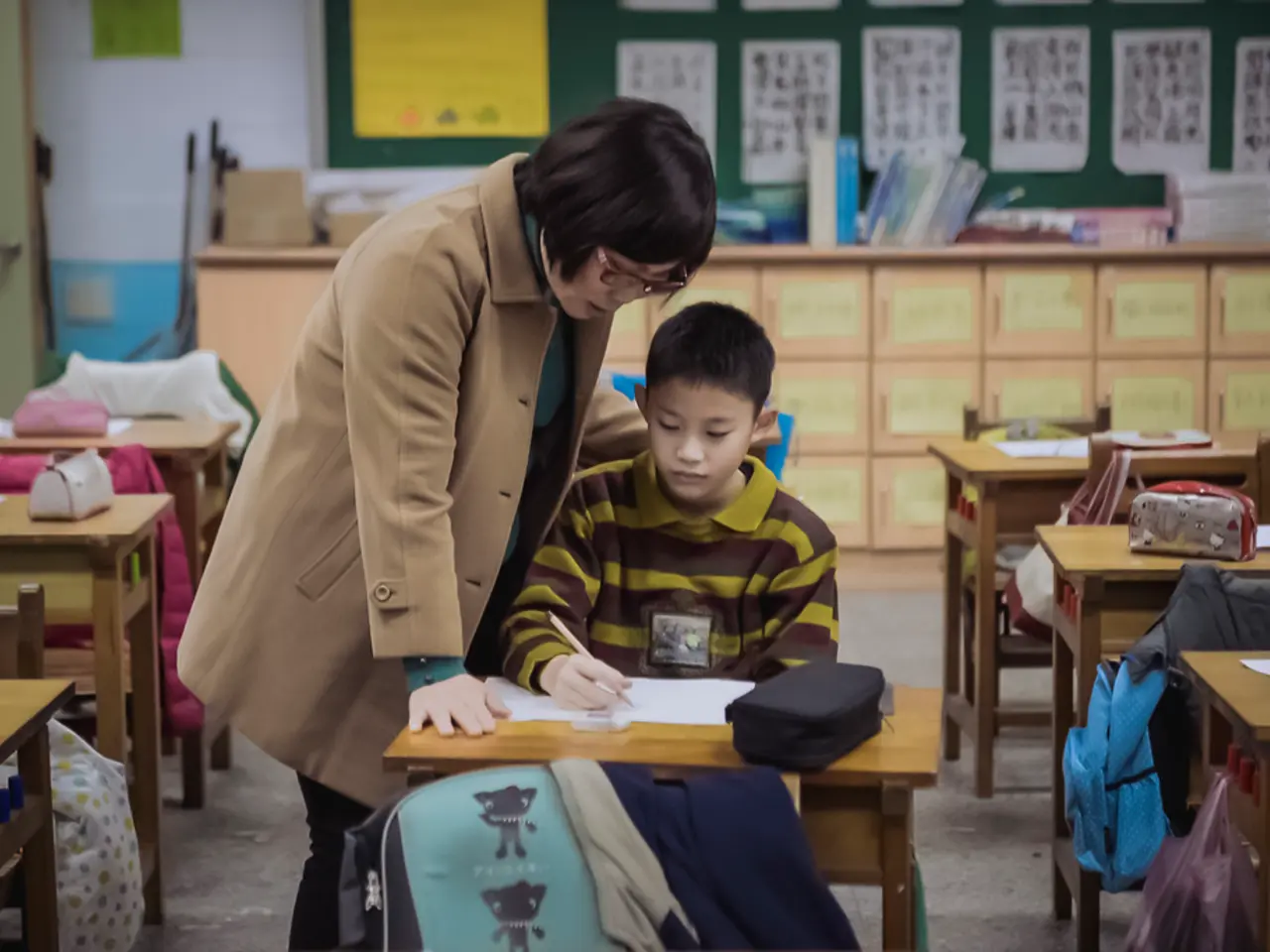Rapid Advancements in AI Are Dramatically Altering the Educational Landscape, Sometimes Deterioratively
Artificial intelligence (AI) is transforming the educational landscape, offering both benefits and challenges for U.S. college students.
A presentation titled "ChatGPT and AI in Education," delivered by Holly Clark, Ken Shelton, and Matt Miller, authors of "The AI Infused Classroom," "The Promises and Perils of AI in Education," and "AI for Educators" respectively, highlighted 20 ways to use ChatGPT in the classroom. Meanwhile, the tech industry is applying its "as-a-service" model to intellectual capacity, raising concerns about the potential for excessive AI use leading to a decrease in "organic" capacity [2].
The use of AI in education is leading to a cycle where users become increasingly dependent on AI, potentially leading to intellectual decline. Research from MIT suggests that reliance on AI for tasks like essay writing may reduce brain activity associated with learning and critical thinking [1]. However, some educators argue that AI tools can enhance students' ability to express themselves and develop more interesting ideas.
The American educational system has been caught unprepared for the wave of cheating inspired by the AI industry. A recent story from 404 Media shows that school districts were courted by pro-AI consultants, who encouraged the use of generative AI in classrooms. Thousands of pages of school district documents obtained via FOIA requests reveal that ChatGPT has become a significant challenge in American education [4].
Inconsistencies in AI use policies across colleges further complicate the issue. While some institutions ban AI for writing assignments, others encourage its use, leading to inconsistency in how AI affects learning outcomes. The Louisiana Department of Education, for instance, sent documents to 404 Media that showed their encouragement of AI use in classrooms [4].
Chungin "Roy" Lee, a transfer student at Columbia University, used ChatGPT to write his personal essay for admission. This anecdote is indicative of a cynical worldview where education is seen as a means to make connections, build social capital, and find romantic partners [3]. The presentation warns that going back to writing essays-only in class can hurt struggling learners and doesn't prepare students for their future.
Concerns persist about AI enabling undetected cheating, which can undermine intellectual development if students rely on AI to complete work without genuine engagement. The presentation suggests rethinking the concepts of plagiarism and cheating in the context of AI.
The story by New York magazine reveals the intellectual impact of AI on college students, featuring anecdotes of students using AI, such as ChatGPT, to complete assignments with minimal effort [5]. The U.S. Department of Education emphasizes AI's potential to enhance personalized learning and sharpen critical thinking while advocating responsible, ethical use involving parents and teachers [4].
In summary, AI's impact on U.S. college students' intellectual development is complex. Institutional efforts focus on maximizing AI's benefits while mitigating risks to ensure it supports rather than replaces critical thinking and learning processes. The challenge lies in finding a balance that encourages the use of AI as a tool for personalized learning and problem-solving, while minimizing its potential to hinder cognitive growth and promote intellectual decline.
References:
- https://www.technologyreview.com/2023/02/14/1068643/ai-education-mit-research-brain-activity/
- https://www.nytimes.com/2023/02/15/technology/chatgpt-college-professors.html
- https://nymag.com/intelligencer/2023/02/college-students-are-using-ai-to-cheat-and-it-might-be-working.html
- https://404media.com/2023/02/the-ai-cheating-scandal-that-is-rocking-american-education/
- https://www.ed.gov/ai/
- Gizmodo reported on the application of the "as-a-service" model to intellectual capacity, raising concerns about potential reliance on artificial intelligence leading to intellectual decline in education and self-development.
- The Louisiana Department of Education encourages the use of artificial intelligence tools in classrooms, which has become a significant challenge in American education.
- Chungin "Roy" Lee, a transfer student at Columbia University, used ChatGPT to write his personal essay for admission, reflecting a worldview where education is seen as a means to make connections and find romantic partners, rather than for learning and self-development.
- The American educational system is grappling with the issue of AI-enabled cheating, as seen in the story from 404 Media about school districts being courted by pro-AI consultants, encouraging the use of generative AI in classrooms.




